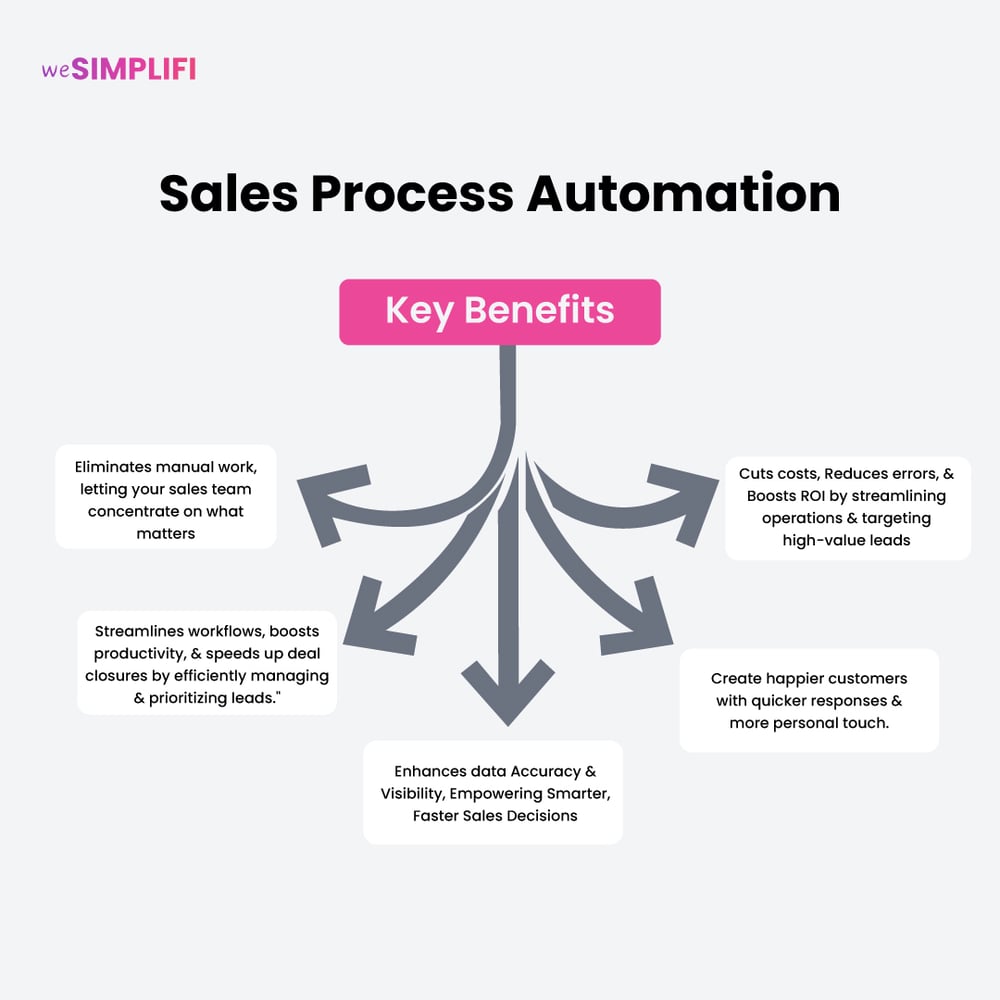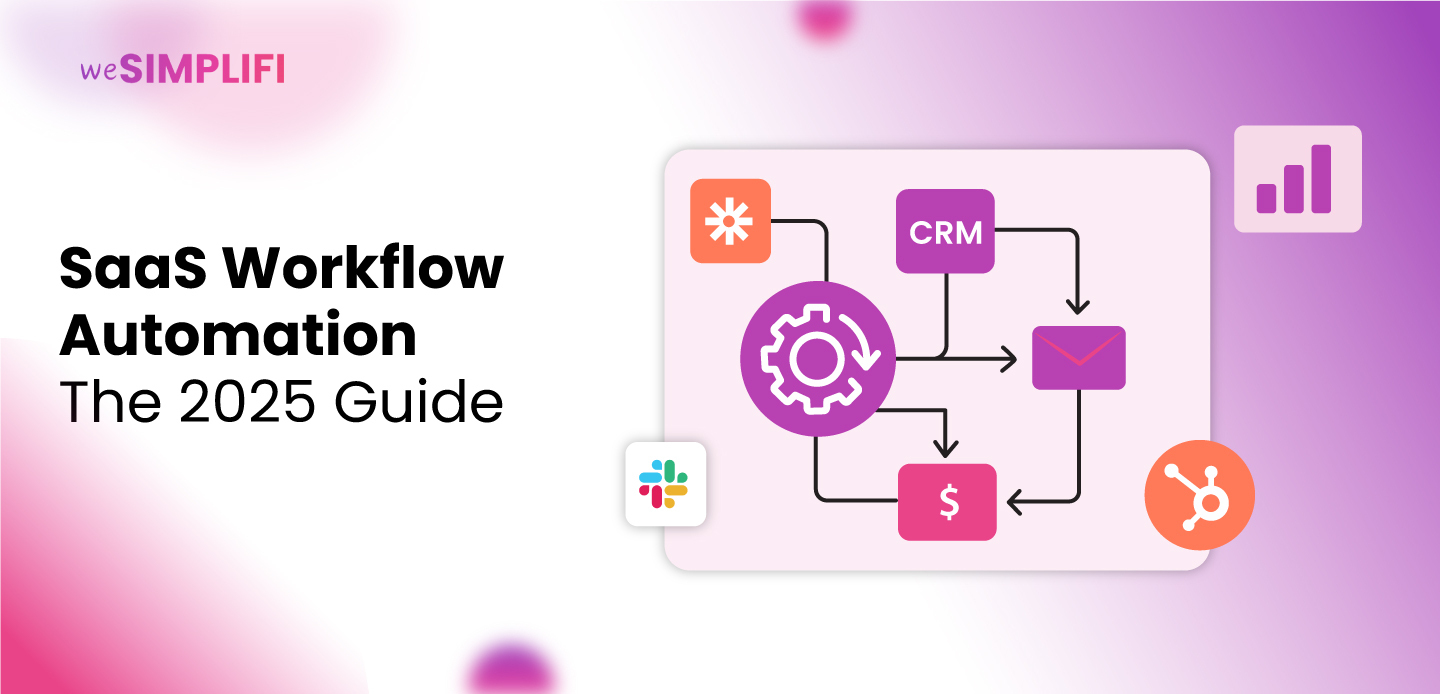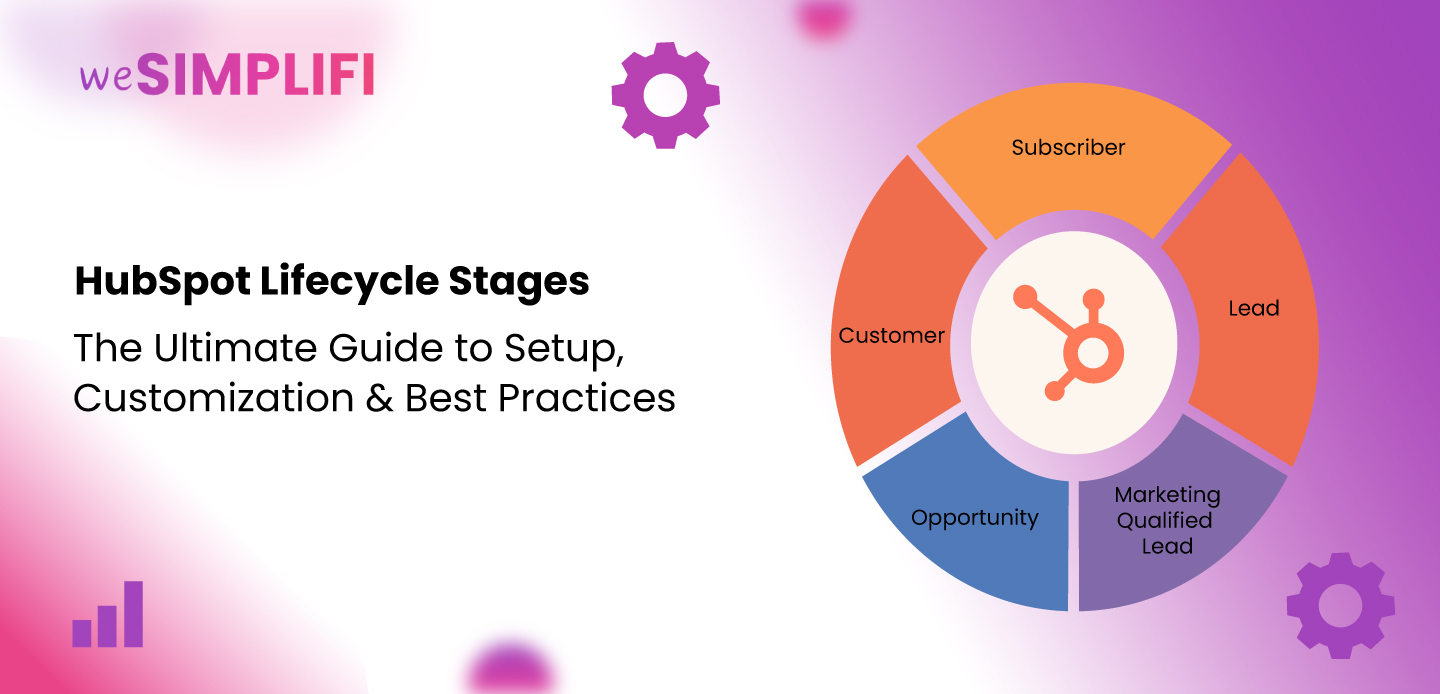What is Sales Process Automation? Tools, CRM Systems & Processes to Scale Revenue
Admin
·
5 minute read

Sales is essentially the backbone of any business that does not just generate revenue but keeps the business thriving by acquiring retainer clients, fostering the brand image, and helping the expansion of business. Most of the sales team, however, are left grasping at straws with repetitive tasks like data entry, sending follow-up mails, and finding prospective clients. Automating these tasks will save up their time leaving room for more strategic tasks like relationship building and deal closing. This is exactly where sales process automation comes into play. This blog will discuss what sales automation is, its benefits for a business and the different tools and software one can leverage to make the most out of automation in sales.
 An in-depth analysis of the benefits of the sales process automation reveals that it aids businesses in several crucial ways and enhances their ROI. These core benefits of sales process automation include:
An in-depth analysis of the benefits of the sales process automation reveals that it aids businesses in several crucial ways and enhances their ROI. These core benefits of sales process automation include:
What is Sales Process Automation?
Sales Process Automation refers to the automation of sales workflows and processes using software and automation tools. It includes automating processes in sales like lead capture, follow-ups, and data entry, etc. by utilising software like the CRM and other sales intelligence and sales engagement platforms. Sales automation allows efficient functioning of the sales team by reducing manual efforts. It boosts their productivity by freeing up time for relationship building and deal closing. It also aids better movement of sales prospects through the sales funnels and retains customers.Why Sales Automation is Crucial for Modern Sales Teams
Contrary to popular belief that AI and machine learning will take over human jobs, they have actually aided sales teams a lot by automating tedious tasks like sending out follow-up emails, data entry, and assessing the lead quality. According to a HubSpot report "Sales professionals estimate they save around 2 hours and 15 minutes daily using AI or automation tools to automate manual tasks such as data entry, note-taking, scheduling, and so on”. This digitisation of the sales processes through sales process automation is creating diverse growth opportunities for the modern-day sales industry. As the time thus saved can be utilised for building better client relationships to close more deals and retain clients. It also promotes data-driven decision making by analysing what is working and what is not through real-time insights about customer behavior, sales pipeline status, and sales performance.Core Benefits of Sales Process Automation
 An in-depth analysis of the benefits of the sales process automation reveals that it aids businesses in several crucial ways and enhances their ROI. These core benefits of sales process automation include:
An in-depth analysis of the benefits of the sales process automation reveals that it aids businesses in several crucial ways and enhances their ROI. These core benefits of sales process automation include:
-
Increased Efficiency and Productivity
-
Enhanced Data Quality and Insights
-
Improved Customer Experience
-
Cost Reduction
-
Enhanced Scalability
Types of Sales Automation Software & Tools
When it comes to automating the sales processes, a hybrid approach works best, i.e. certain tasks should be completely automated while leaving some tasks like closing the deal to the human sales reps. The tasks that can be automated include lead management, lead research, follow up communication, sales analytics, scheduling sales call, and lead qualification, etc. The software and tools that can be used for sales automation include:-
CRM (Customer Relationship Management) software
-
Analytics Tools
-
Email Automation tools
-
Lead Generation Tools
How Sales Automation Works: Step-by-Step Process
Visual breakdown (can use infographic later) Sales Automation includes the automation of sales tasks/processes like lead capture, qualification, nurturing etc. The step-by-step process of how a sales automation system works includes the following:-
Lead Capture
-
Follow-Up
-
Lead Qualification
-
Closing the Deal
Common Mistakes to Avoid When Implementing Sales Automation
Although sales automation is a boon for business growth but without a clear strategy and expertise of the software, it can turn into a sales nightmare. The common mistakes that should be avoided while implementing sales automation include:-
Not defining the sales process
-
Lack of personalization/ Over automation
-
Using bad data
Access to high quality data is another factor that contributes to the success of sales automation. Bada data like duplicate records, or outdated contact information is detrimental for the sales efforts and thus data should be consistently refined. -
Choosing the wrong automation software
FAQs
1.What is the best sales automation tool?
The best sales automation tool is subjective to the business’ needs and goals but the popular sales automation tools are HubSpot’s Sales Hub, and Salesforce. They offer customised solutions for lead management (including lead generation, tracking, and nurturing), sales process automation, and tracking for data-driven decision making.
2.Can small businesses use sales automation?
Sales automation is a great investment for small businesses as they can gain a lot by streamlining their sales processes, it allows them to improve sales and scale without the hassle of hiring too many professionals.


-1.jpg)